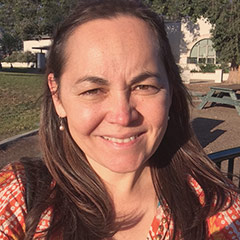
ACADEMICS
Music Teaching & Learning
The USC Thornton School of Music counts among its alumni a multitude of collegiate, public school and community music educators across the country. These leaders consistently strive for excellence in musicianship and are shaping music teaching and learning worldwide. Graduates of the USC Thornton Music Teaching & Learning program are among the first choice for professional performing ensembles and schools in search of the finest musicians, teachers and community leaders. The USC Thornton Music Teaching & Learning program offers three degrees: the Master of Music and the Doctorate of Musical Arts in Music Teaching & Learning and a new professional master’s degree in community music.

Popular Music Teaching and Learning
For more than a century, music education programs have prepared elementary, middle and high school teachers to lead marching bands, choirs and orchestras. The last two decades, however, have seen an explosion of new interest from students wanting to perform in pop groups and to learn other aspects of popular music such as songwriting, guitar and digital music production. To fill that need, USC Thornton – who pioneered a highly successful popular music performance program for undergraduates 15 years ago – is offering a new master’s degree in popular music teaching & learning.
Graduate Programs – Music Teaching and Learning
Master of Music
Music Teaching and Learning
2 years | 30 units
The goal of this professional degree is to prepare the student for an advanced level of pre-college teaching and leadership in the music education profession by developing core knowledge and expertise in pedagogical skills and scholarship. It provides a seamless transition into the DMA in Music Teaching and Learning, with most units being transferable to the DMA requirements.
Refer to the USC Catalogue for complete course descriptions and degree requirements here.
Master of Music
Popular Music Teaching and Learning
2 years | 30 units
The Master of Music in Popular Music Teaching and Learning is a professional degree that prepares graduates for the growing teaching opportunities in the private, public and community sectors in popular music through a curriculum that balances professional practice, scholarship and research. Course work addresses issues specific to teaching popular music including blending informal and formal teaching strategies, songwriting, music production, small ensemble/band coaching, vocal coaching and program development. Additional courses in music teaching and learning provide foundational work in research, teaching philosophies, music psychology, technology, community music and assessment.
Refer to the USC Catalogue for complete course descriptions and degree requirements here.
Graduate Programs – Community Music
Master of Music
Community Music
2 years | 30 units
The Master of Music in Community Music degree is designed to meet the growing demand for musician-educators working in community settings. In the 2-year program, students will gain skills and experience to function in a variety of community roles: as teachers, teaching artists, and facilitators and administrators who guide the music-making of others. The degree provides a natural avenue to become involved in wide-ranging community programs across Los Angeles and, in particular, the USC Thornton Community Engagement Programs.
Refer to the USC Catalogue for complete course descriptions and degree requirements here.
Doctoral Programs
Doctor of Musical Arts
Music Teaching and Learning
68 units
The DMA in Music Teaching and Learning consists of the following areas of study: the basic DMA curriculum, course work in the major, an academic field and two elective fields.
The DMA curriculum has been designed to extend beyond the public school setting and prepare students for collegiate teaching in both traditional and alternative settings (such as community-based and on-line programs). Further, the degree offers innovative courses on teaching at the college level. Students have the opportunity to intern with university professors in music education methodology classes. The program also includes core scholarly subjects, such as research, sociology, philosophy, psychology and history of music education. The focus goes beyond the traditional band/orchestra/choir model and extends to additional areas especially relevant to the current diverse and technologically proficient student population.
The professional degree stresses teaching with cutting-edge technological tools while developing core knowledge and expertise in pedagogical skills and scholarship. Students will acquire writing and design skills for a wide range of multimedia publications, while being able to pursue a choice of research activities or advanced creative work that will enable them to lead our profession to new heights. USC is one of the few universities that equally values students being able to declare elective fields in areas outside of music education, while also achieving rigorous scholarship, writing and multimedia design skills, and gaining pedagogical experience that prepares them for collegiate teaching in a rapidly changing society.
Refer to the USC Catalogue for complete course descriptions and degree requirements here.

The four-semester degree includes study in educational theory, progressive methods in pedagogy, applied music instruction, and entrepreneurship as well as a practicum which engages students with one of our many community partners in Los Angeles.
Spotlights
see all







